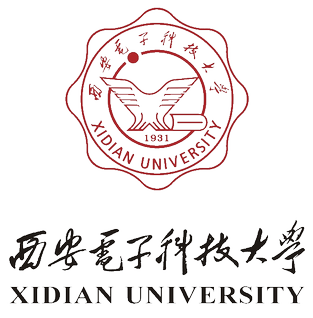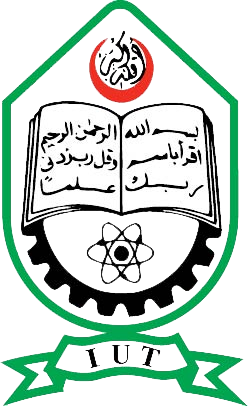
University of Rovira i Virgili is located in the Catalan cities of Tarragona and Reus, Spain. Its name is in honor of Antoni Rovira i Virgili.

Wrocław University of Science and Technology is a technological university in Wrocław, Poland. With buildings and infrastructures dispersed throughout the city, its main facilities are gathered at a central location near Plac Grunwaldzki, alongside the Oder river. It operates three regional branches in Jelenia Góra, Legnica, and Wałbrzych. Huffington Post UK named Wrocław University of Science and Technology in the top 15 of the World’s Most Beautiful Universities Rankings.

Xidian University is a public university in Xi'an, Shaanxi, China. It is affiliated with the Ministry of Education, and co-funded by the Ministry of Education, the Ministry of Industry and Information Technology, SASTIND, and China Electronics Technology Group Corporation. The university is part of the Double First-Class Construction and Project 211.

The Institution of Engineers of Ireland or the IEI, is an engineering society primarily representing members based in Ireland. The institution is Ireland’s recognised organisation for accreditation of professional engineering qualifications under the Washington Accord, Sydney Accord, and Dublin Accord.
CARNET is the national research and education network of Croatia. It is funded from the government budget and it operates from offices in Zagreb and five other cities.

The Polytechnic University of Turin is the oldest Italian public technical university. The university offers several courses in the fields of Engineering, Architecture, Urban Planning and Industrial Design, and is consistently ranked as one of the best universities in Italy and in the world. As of 2024, it is ranked 28th worldwide for Mechanical Engineering, 22nd for Petroleum Engineering, 21st for Architecture and is among the top 100 (52nd) engineering and technology universities in the world.

Sir Syed University of Engineering and Technology is a private research university located in the urban area of Karachi, Sindh, Pakistan. The university is honored in the name of notable 19th-century Indian Muslim reformer and philosopher, Sir Syed Ahmad Khan.
The VDE e. V. is a German technical-scientific association. VDE is best known for creating and maintaining standards in the field of electric safety and has a strong influence on the DIN.

The Institution of Engineering and Technology (IET) is a multidisciplinary professional engineering institution. The IET was formed in 2006 from two separate institutions: the Institution of Electrical Engineers (IEE), dating back to 1871, and the Institution of Incorporated Engineers (IIE) dating back to 1884. Its worldwide membership is currently in excess of 158,000 in 153 countries. The IET's main offices are in Savoy Place in London, England, and at Michael Faraday House in Stevenage, England.
Mar Baselios College of Engineering and Technology(Autonomous), is an engineering educational institution located at Thiruvananthapuram, Kerala, India offering engineering education and research. The college is located on a hillock in the Bethany Hills. The educational Institution is situated along the way from Kesavadasapuram to Mannanthala route, this road further extends to north of Kerala as the MC Road.

Islamic University of Technology, commonly known as IUT, is an international engineering technological research university located in Gazipur. IUT offers undergraduate and graduate programs in engineering and technical education.

The Electrical Engineering STudents' European assoCiation (EESTEC) is a nonprofit apolitical and non-governmental student organization for Electrical Engineering and Computer Science (EECS) students at universities, institutes and schools of technology in Europe awarding an engineering degree. As of March 2020, there were 48 current locations in EESTEC from 24 countries, although several other locations were active in EESTEC over the years.

The American Ceramic Society (ACerS) is a nonprofit organization of professionals for the ceramics community, with a focus on scientific research, emerging technologies, and applications in which ceramic materials are an element. ACerS is located in Westerville, Ohio.

MIREA — Russian Technological University is The Federal State Budget Educational Institution of Higher Education «MIREA — Russian Technological University». It is a higher educational institution in Moscow, Russia, which is an educational, research and innovation complex. It was ranked # 1,960 globally in 2023 by US News & World Report.

The Government Engineering College, Barton Hill, Thiruvananthapuram, was founded by the Government of Kerala in August 1999 and provides technical education under APJ Abdul Kalam Technological University. The institution is located in Barton Hill, which is two kilometres (1.2 mi) from the city centre in Thiruvananthapuram.

Norbert Pohlmann is a computer scientist and a professor at the Westfälische Hochschule. He is also chairman of the board of the IT security association TeleTrusT.
In its succinct definition, healthcare engineering is "engineering involved in all aspects of healthcare". The term engineering in this definition covers all engineering disciplines such as biomedical, chemical, civil, computer, electrical, environmental, hospital architecture, industrial, information, materials, mechanical, software, and systems engineering.

Kam-Fai Wong or William Wong Kam-fai, MH is a Chinese computer scientist who a professor of engineering at the Chinese University of Hong Kong, a fellow at the Association of Computation Linguistics, and politician. He is a member of the Legislative Council of Hong Kong for Election Committee constituency, associate dean of the faculty of engineering of the Chinese University of Hong Kong and a Hong Kong member of National Committee of the Chinese People's Political Consultative Conference (CPPCC).













